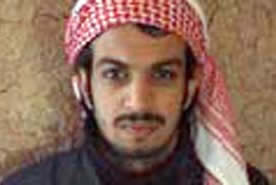 Fierce clashes broke out on Sunday between Shia militants and Iraqi police in the restive province of Diyala, in which at least seven people were killed, a local police officer said.
Fierce clashes broke out on Sunday between Shia militants and Iraqi police in the restive province of Diyala, in which at least seven people were killed, a local police officer said.The fighters loyal to radical cleric Moqtada Al-Sadr clashed with police in the villages of Kharnabat and Al-Huwaidar, north of Baquba, the provincial capital, said Lieutenant Colonel Najim Al-Sumaidaie from Baquba police.
He said five militants from Sadrs Mahdi Army militia and two policemen were killed in the clashes. The fighting follows similar clashes between Mahdi Army militiamen and Iraqi police and troops this week in the central Iraqi city of Kut in which at least 19 people were killed. Sadr has ordered his militiamen to observe a ceasefire he declared late August and renewed on February 22, but admits there are splits in his movement.
Though the young cleric, earlier this month, announced he would spend more time on his religious studies, his aides have said he remains in overall control of his militia and has not withdrawn from the political scene. US military commanders refer to Mahdi Army fighters refusing to lay down their arms as rogue elements, some of whom they say have crossed into Iran for training.
US military spokesman Rear Admiral Gregory Smith on Sunday said the fighting in Kut was localised. In most instances these are local groups which are having their differences, which are being dealt with through violence, Smith told a news conference. It is limited. It is on a limited scale. The security forces have for the most part dealt with the violence. We do not view it as a widespread issue of concern outside Kut.
In other violence on Sunday, one person was killed when a car bomb in Baghdads western Mansur neighbourhood targeted a convoy of four-wheel drive vehicles usually used by private security contractors, an Interior Ministry official said.

 Al Qaeda is using children as suicide bombers in Iraq, with at least two attacks in the past week committed by 15-year-olds, a US military commander claimed.
Al Qaeda is using children as suicide bombers in Iraq, with at least two attacks in the past week committed by 15-year-olds, a US military commander claimed.  The photograph shows a young man sporting a red-and-white chequered head-dress, a wispy beard and a zealot's eyes.
The photograph shows a young man sporting a red-and-white chequered head-dress, a wispy beard and a zealot's eyes. 